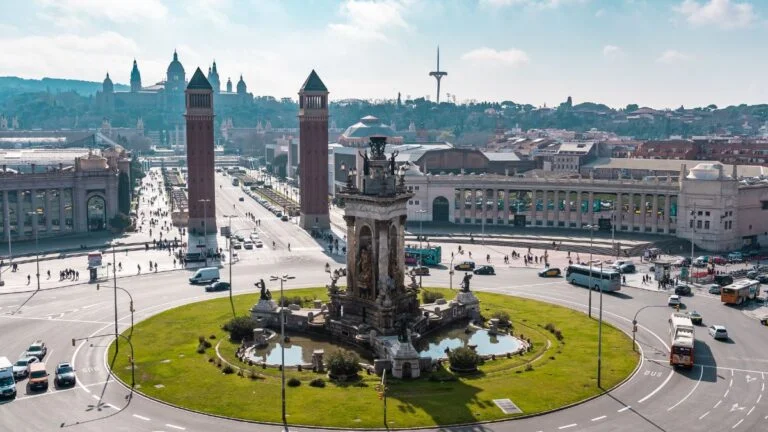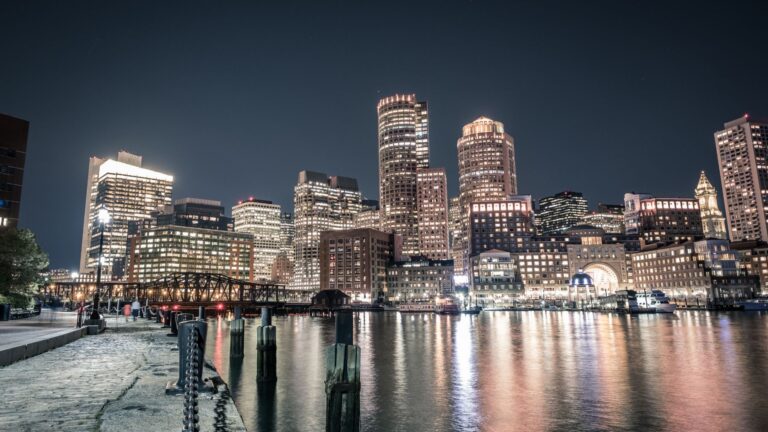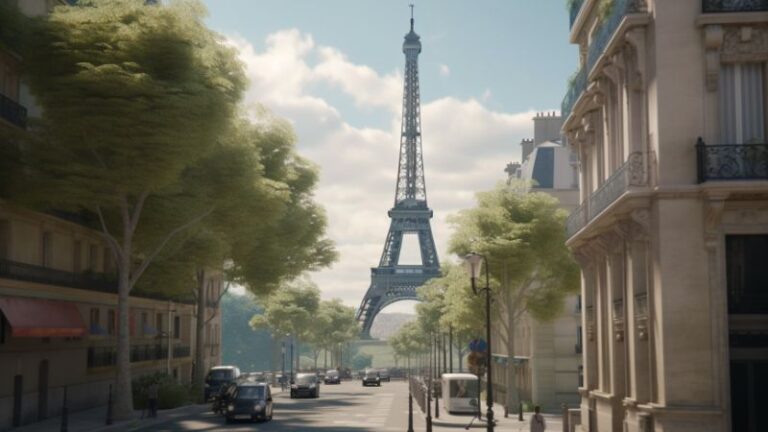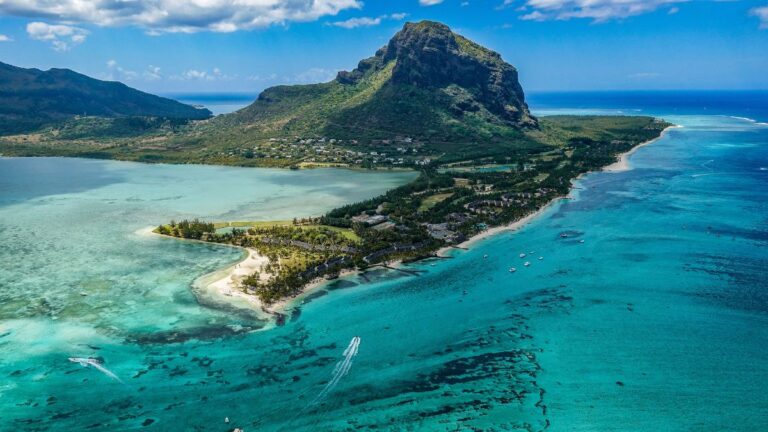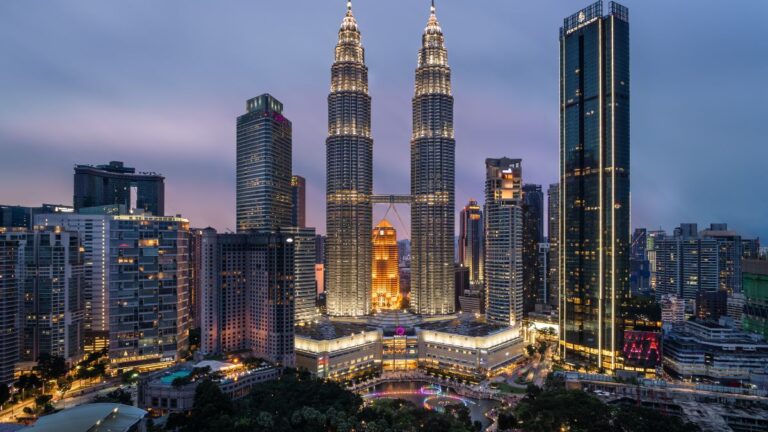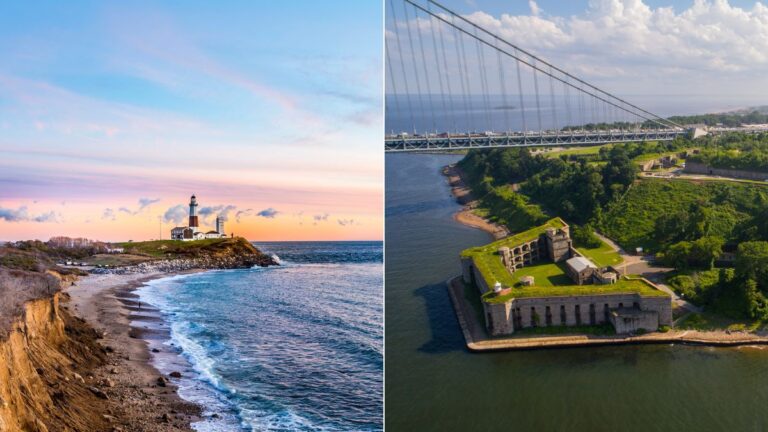Worst Time to Visit Vancouver: Understanding the City’s Seasonal Hurdles
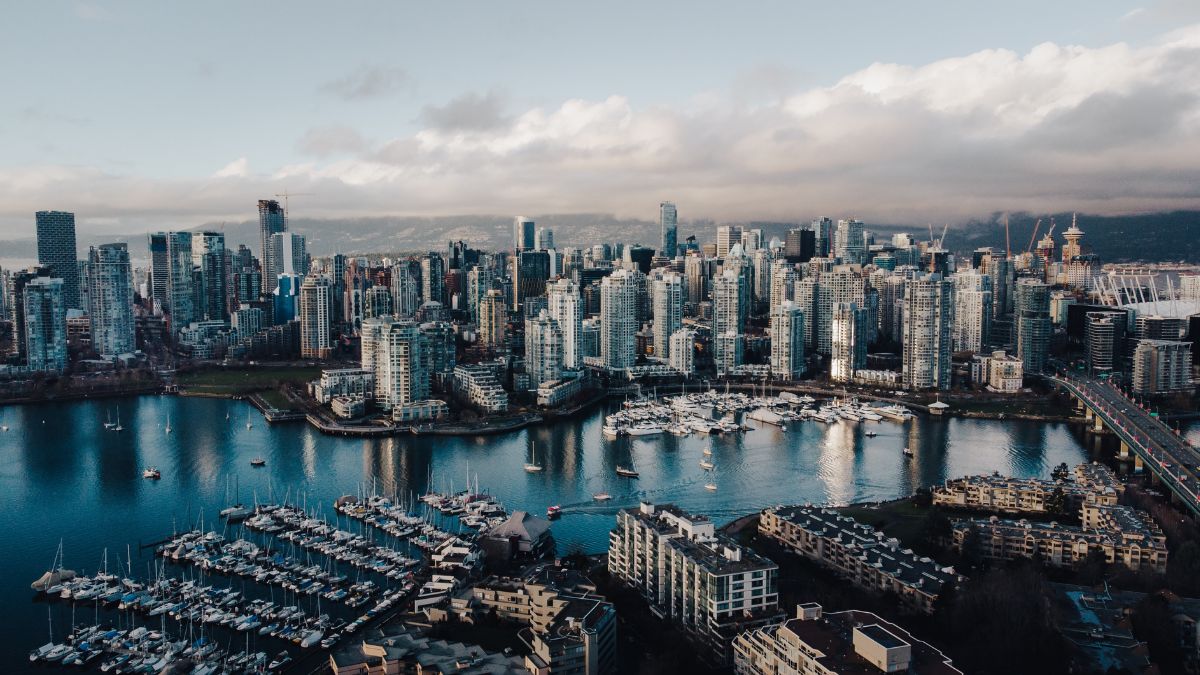
As participants in Amazon Associates and other programs, we earn from qualifying purchases. This comes at no additional cost to you. For more details, see our Affiliate Disclosure.
As one of Canada’s most picturesque and dynamic cities, Vancouver draws in millions of visitors each year, offering a spectrum of experiences from soaring mountain peaks to vibrant downtown vistas. However, even the most charming of destinations have their less-than-ideal times, and Vancouver is no exception.
This article intends to guide you through the less favorable periods to visit this beautiful city, navigating through Vancouver’s seasonal hurdles. We’ll provide a comprehensive breakdown of what to expect during certain times of the year, thereby equipping you with the knowledge to optimize your travel plans and circumnavigate any potential drawbacks.
The Downpour Dilemma: Understanding Vancouver’s Rainy Season
Vancouver, often lovingly referred to as “Raincouver” by locals, is notorious for its rain-soaked winters. The city’s coastal location at the edge of the North Pacific Ocean makes it susceptible to frequent rainfall, especially from October through March. During this period, the city can sometimes seem to be perpetually veiled in a curtain of mist and drizzle, with grey skies the norm rather than the exception.
The rain doesn’t merely result in damp streets and the need for a trusty umbrella. It also impacts outdoor activities that the city is so famous for. Planning a winter hike on one of the city’s stunning trails? The rain could turn it into a muddy adventure. Looking forward to some city exploration on foot? Prolonged downpours might make your trek less enjoyable.
Furthermore, the rain can also contribute to more serious challenges such as landslides in certain regions, affecting travel plans and even causing temporary closures of popular attractions.
While Vancouver’s rainy season does bring a unique, moody beauty, the frequent precipitation can pose hurdles to your plans, particularly if you’re hoping to spend much of your time outdoors. Thus, it’s crucial to consider your tolerance for rain and the flexibility of your itinerary when planning a trip during this period.
Grey Skies and Short Days: Navigating the Winter Months
As well as being known for its rainy season, Vancouver is also characterized by its grey, overcast skies and short daylight hours in the winter months, typically from late November through to February. The sun usually sets around 4 p.m. during the winter solstice in December, leaving little daylight for exploration. Furthermore, with the city often blanketed by thick clouds, daylight can feel even more fleeting.
This limited daylight can significantly impact your sightseeing plans. With fewer daylight hours, you may have to prioritize certain activities over others or plan more indoor activities. While Vancouver offers a plethora of indoor attractions, such as museums, art galleries, and shopping centers, the allure of this city is often its natural beauty, which can be less enjoyable under grey skies.
Winter in Vancouver also comes with a chill, although not as severe as in other parts of Canada. The temperatures usually hover around the freezing mark, but wind chills can make it feel much colder. This could pose a challenge if you’re not accustomed to colder climates or if you have planned for more outdoor activities.
However, if you’re a winter sports enthusiast, the winter months could be a fantastic time to visit. Vancouver is in close proximity to some excellent ski resorts, with snow-covered mountains offering perfect conditions for snowboarding, skiing, and other winter sports. Remember, though, that these activities are subject to weather conditions and could be disrupted by heavy rain or fog.
Shoulder Season Surprises: Potential Hurdles in Spring and Fall
The shoulder seasons, spring (April to June) and fall (September to November), are often considered the best times to visit Vancouver due to moderate weather and fewer crowds. However, these transitional periods between the peak and off-peak seasons can also come with their own set of unexpected challenges.
Spring in Vancouver is a time of blossoming beauty as the city awakens from its winter slumber. However, the weather can be incredibly unpredictable. It’s not uncommon for the city to experience sunshine, rain, and even the occasional snow flurry all in the same week, or sometimes in the same day! This erratic weather can disrupt outdoor activities, requiring visitors to be prepared for all weather conditions.
Fall in Vancouver, while celebrated for its stunning foliage, also sees a gradual increase in rainfall as the season progresses. By late October and November, the rainy season begins in earnest, and the increased precipitation can limit outdoor activities. Additionally, certain attractions, especially those that are more summer-centric like water sports or certain hiking trails, might have reduced hours or be closed for the season.
In both spring and fall, the temperatures can range from chilly to mild, often within the same day. Layering is key during these seasons to ensure comfort as temperatures fluctuate.
Lastly, while the shoulder seasons are generally less crowded, certain events, like the Vancouver Cherry Blossom Festival in spring or the Vancouver International Film Festival in fall, can draw significant crowds. This can lead to increased hotel rates and crowded attractions, so it’s best to check the city’s event calendar while planning your trip.
Despite these potential hurdles, the shoulder seasons can offer a wonderful balance of favourable weather and lower tourist traffic. By staying flexible and prepared, visitors can navigate these seasonal challenges and fully enjoy the unique beauty Vancouver offers in spring and fall.
Summer Season: Not Always Sunny in Vancouver
Summertime in Vancouver, stretching from late June through August, is often painted as the ideal time to visit. Indeed, the city comes alive under the warmth of the sun, with outdoor activities such as hiking, biking, and water sports taking center stage, and patio dining and summer festivals enlivening the cityscape. However, despite the season’s overall charm and vibrancy, it’s worth noting that Vancouver’s summers may not always meet the sunny expectations set by most tourist guides.
While temperatures are generally mild, ranging from 20 to 30 degrees Celsius (68-86°F), the city can experience heatwaves where temperatures soar even higher. For those unaccustomed to heat, this can prove to be uncomfortable, especially when exploring outdoor attractions. Air conditioning isn’t as prevalent in Vancouver as in other parts of North America, making indoor escape from the heat less accessible.
Summer is also the peak tourist season for Vancouver, and with the surge of visitors comes increased prices for accommodations and potentially crowded attractions. Popular sites like Stanley Park, Granville Island, and Capilano Suspension Bridge can become quite packed, which might detract from the enjoyment of these experiences.
Furthermore, though the city experiences its lowest rainfall during these months, summer isn’t entirely devoid of precipitation. Unexpected showers can still occur, and while they typically don’t last long, they can interrupt your outdoor plans.
Lastly, it’s worth noting that summer is also wildfire season in British Columbia. While the city of Vancouver is generally safe from direct impacts, smoke from fires in other parts of the province can sometimes result in hazy skies and poor air quality, which can affect outdoor activities and those with respiratory issues.
The Forest Fire Factor: Assessing Summer Risks
British Columbia, the province in which Vancouver is situated, has become increasingly prone to forest fires during the summer months, a situation exacerbated by climate change. While these wildfires predominantly occur in the interior regions of the province, they can indirectly impact Vancouver, leading to a few potential challenges for visitors during this time.
One of the most notable effects of these fires is the smoke they produce. Prevailing winds can carry this smoke over long distances, and it can often reach Vancouver, reducing air quality significantly. On smoky days, the cityscape can be blanketed by a hazy, grey atmosphere that obscures the views of the city’s stunning natural scenery.
Moreover, poor air quality can pose a serious health risk, especially for those with respiratory issues, elderly individuals, and young children. It can cause symptoms like coughing, throat irritation, headaches, and shortness of breath. Therefore, during such conditions, it’s recommended to stay indoors as much as possible, restricting the range of activities for tourists.
The smoke can also impact transportation. Reduced visibility can lead to disruptions in ferry schedules and potentially impact flights in and out of the city, causing unexpected changes to travel plans.
Wildfire risks can also limit access to certain outdoor activities in and around Vancouver. Some parks and recreational areas may close as a precautionary measure, and camping restrictions are often put in place.
When planning a summer visit to Vancouver, it’s prudent to consider the potential impact of wildfires on your travel plans. Keeping a close eye on the British Columbia Wildfire Service website for updates on fires and smoke forecasts, and adjusting your plans accordingly, will help ensure a safer and more enjoyable visit. Despite this challenge, remember that there’s still a multitude of indoor attractions that Vancouver offers, ensuring your visit to the city remains memorable.
Festive Frustrations: Challenges of Visiting During Holiday Seasons
The holiday seasons, primarily Christmas and New Year, are a magical time to visit Vancouver. The city comes alive with stunning light displays, bustling holiday markets, and a festive atmosphere. However, visiting Vancouver during these peak festive periods can also present its own set of challenges.
One of the main hurdles during the holiday seasons is the increased number of visitors. Many people travel to Vancouver to enjoy the city’s festive offerings, which can lead to crowded attractions and public transportation. The city’s most popular holiday events, such as the Vancouver Christmas Market or the Festival of Lights at VanDusen Botanical Garden, can get quite busy, requiring patience and potentially long waits.
Increased tourism also results in higher demand for accommodations and dining reservations, often leading to inflated prices and limited availability. Therefore, if you’re planning a holiday visit, it’s recommended to book well in advance and be prepared for higher than usual costs.
Another consideration is the weather. As mentioned earlier, winter in Vancouver is characterized by frequent rain and overcast skies, which could potentially dampen outdoor festive activities. While the city does not usually see extreme cold or heavy snowfall, occasional snowstorms can occur, potentially disrupting travel plans and causing closures of certain attractions.
Furthermore, many businesses operate on reduced hours or close altogether on certain holidays like Christmas and New Year’s Day. This could limit dining and entertainment options and requires careful planning to ensure a smooth travel experience.
Despite these potential frustrations, visiting Vancouver during the holiday seasons can still be a joyful and enchanting experience. With a little planning, flexibility, and a good dose of holiday cheer, you can navigate these challenges and thoroughly enjoy the city’s festive offerings.
City-wide Events: When the Crowds Become Overwhelming
Vancouver, a city teeming with cultural diversity and a vibrant arts scene, frequently hosts a plethora of city-wide events, ranging from music festivals to international film festivals, and from marathons to Pride parades. While these events contribute to the city’s dynamic atmosphere and provide unique entertainment options for visitors, they can also lead to certain challenges, particularly when the influx of event-goers becomes overwhelming.
Significant events draw in large crowds, not just from the local populace but often from around the globe. This surge can lead to congested public transportation, busy streets, and crowded attractions. Additionally, popular spots for dining and nightlife may become particularly packed, with longer wait times and less availability.
Increased demand during these events can also lead to higher accommodation prices, with hotels in popular areas often fully booked well in advance. If you’re visiting during a major event and not particularly interested in participating, you may find yourself paying premium prices for accommodation and experiencing the inconvenience of large crowds.
Moreover, certain events may lead to road closures or rerouting of public transportation to accommodate event venues or routes, particularly in the case of parades or marathons. This can complicate navigation within the city, potentially disrupting your sightseeing plans.
While these events can pose challenges, they also offer unique experiences that can enhance your visit to Vancouver. If you’re interested in the event, the vibrant atmosphere and shared community experience can be well worth navigating the additional hurdles. If you’d prefer to avoid the crowds, consider checking Vancouver’s event calendar when planning your visit. With a bit of research and strategic planning, you can either join in the city’s big celebrations or enjoy a more tranquil visit.
The Cost Component: Unraveling the High Price Season
When planning a trip to Vancouver, understanding the cost dynamics is as crucial as knowing the best sights to see or the top foods to try. Like many popular tourist destinations, Vancouver experiences fluctuations in prices for accommodations, attractions, and even dining options, which often align with the city’s peak tourist season and major events. This section unravels the concept of the “high price season” and offers insights to help you budget your trip effectively.
The peak tourist season in Vancouver typically runs from June through August, coinciding with the warm and sunny summer months. During this time, you can expect to see a noticeable increase in prices for accommodations, particularly in popular areas such as Downtown, Gastown, or near major attractions like Stanley Park. Booking well in advance can help secure better rates, but be prepared for higher costs compared to off-peak periods.
Major city-wide events, such as the Vancouver International Film Festival or the Vancouver International Jazz Festival, also attract a significant influx of visitors, leading to heightened demand and higher prices. If you’re not interested in these events, planning your visit outside these periods can help avoid the price surge.
Similarly, holiday seasons like Christmas and New Year bring a flood of tourists, resulting in inflated prices for accommodations and dining. Festive packages or special events often come with a higher price tag during these times.
It’s also worth noting that certain attractions may have variable pricing based on the season. For instance, entry fees for gardens or parks may be higher during the blooming season, and ski resort prices often peak during the prime winter months.
Planning a budget-friendly trip to Vancouver doesn’t necessarily mean missing out on what the city has to offer. The shoulder seasons – spring and fall – provide a balance between pleasant weather and reasonable prices. Furthermore, regardless of when you visit, exploring the city’s wealth of free or low-cost activities, such as hiking in the city’s beautiful parks or exploring public art, can help stretch your budget.
Making the Most of Your Visit: Tips to Overcome Seasonal Challenges
Even with the potential seasonal challenges that Vancouver presents, there are numerous strategies to make the most of your visit. From packing the right gear to planning flexible itineraries, there are ways to embrace and overcome these hurdles, turning potential inconveniences into integral parts of your travel experience.
- Packing for Success: Vancouver’s weather can be unpredictable. Pack layers to accommodate shifts in temperature and always include waterproof gear, especially outside of the summer months.
- Flexibility is Key: Have a variety of activities planned for each day, including indoor options. This will allow you to adjust your schedule according to the weather and any unexpected circumstances.
- Plan Ahead: Popular attractions can get crowded during peak seasons and city-wide events. Purchase tickets in advance, arrive early, or opt to visit during non-peak hours.
- Stay Informed: Check the forecast and event calendars regularly. Be aware of potential issues such as smoke from wildfires during the summer or heavy rain in the winter.
- Consider Off-Peak Travel: Visit during the shoulder seasons (spring and fall) to enjoy moderate weather, fewer crowds, and potentially lower prices.
- Embrace the Rain: Don’t let the rain stop you from enjoying Vancouver’s beauty. Some of the best views and experiences come from misty mountain hikes or rainy walks through the city’s parks.
- Enjoy Local Indoor Attractions: Vancouver has a rich arts and culture scene with numerous galleries, museums, and shopping areas to explore during inclement weather or poor air quality days.
- Prepare for Costs: Vancouver can be expensive during peak tourist seasons and major events. Budget for your trip accordingly, and consider less busy times for a more economical visit.
By taking these tips into account, you can navigate Vancouver’s seasonal hurdles successfully, ensuring an enjoyable visit regardless of when you choose to explore this dynamic city. Remember, every season in Vancouver brings its own unique charm, and with a little preparation, you can make the most of your visit during any time of the year.

